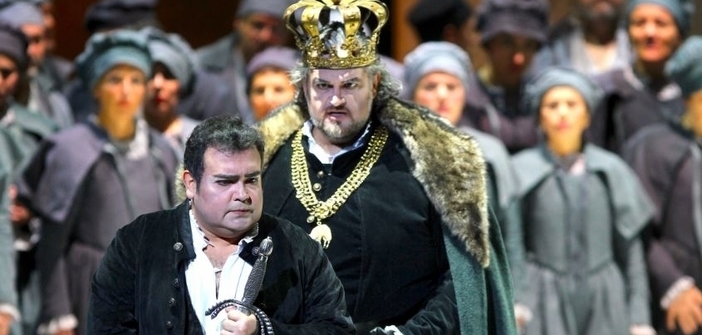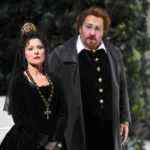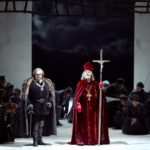“Don Carlo,” the most monumental opera by Verdi, returns to the Carlo Felice Theatre in Genoa after 16 years of absence. A synthesis of real romance, shadow of the short Spanish history of Philip II, the grandeur and power of this work are the result of the romantic re-elaboration of Schiller’s sturm und drang spirit.
In the historical reality of Philip II’s reign, marked by a heavy inheritance (the Empire on which the sun never sets, left by his father Charles V, shared with his brother Ferdinand) was full of shadows and lights: the great leader was very active in proud and expensive wars; among the figures historically plunged into darkness, it is certainly that of Don Carlo, Prince of Asturias, who died a bachelor, without descendants at 23, born in 1545 from Philip II’s first marriage to his cousin Maria Manuela of Aviz. Possibly suffering from mental disorders, the Prince of Asturias thus faced a sad destiny, probably dying of dysentery after being sequestered by his father, the King.
In 1672, thanks to Abbé César Vichard de Saint-Réal (Chambéry, 1639 – Chambéry, 1692), a French writer, among the first authors of historical novels, the legend of Don Carlo was born. Friedrich Schiller, by taking up the passionate, ethical, spiritual, and human aspects of the narrative, created the opera’s libretto, first performed in Hamburg in 1787. Originally, the piece is divided into 5 acts, while its Italian version from 1884 (Milan, Teatro alla Scala) is divided into 4 acts, with the addition of the first meeting in the Forest of Fontainebleau, beginning an impossible promise of love between Don Carlo and Elisabeth of Valois, who would become the emperor Philip’s third wife. 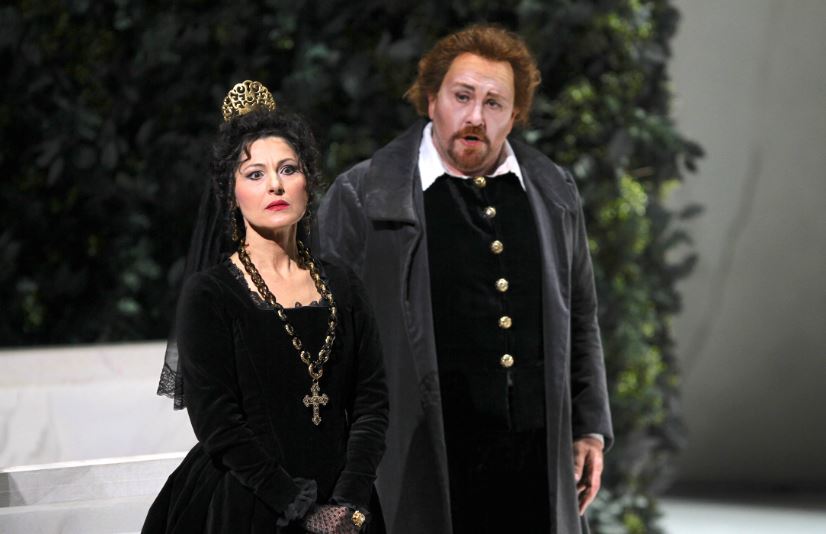
The importance of the work is perhaps due to the imposing space reserved for the inner analysis of the characters: Carlo’s extreme passion shared by Elisabeth. The jealousy and desire for revenge of Princess Eboli, also in love with Carlo. The faithful friend Rodrigo, who tries in vain to save the prince and the fate of the Calvinist Flanders. The human doubt of the king forced to condemn his son to respect the order of the Grand Inquisitor, the most important character in the work (with the ghost of the deceased emperor Charles V) and the fanatical populace that only destroys the hopes and feelings of each individual.
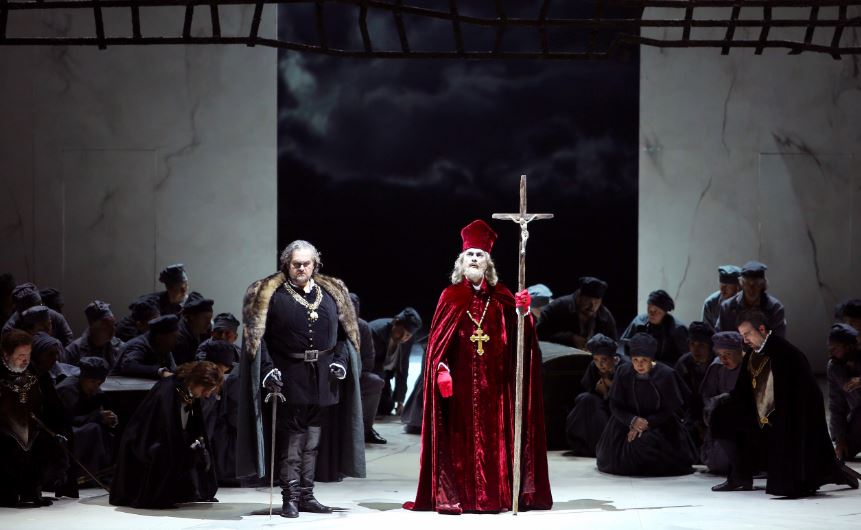
The power of Verdi’s score at the most important moments with splendid duos and a memorable trio in the third act, with melodic moments characterized by dramatic taste or romantic desire. In the staging at the Carlo Felice Theatre, the bass Riccardo Zanellato (Filippo II), baritone Franco Vassallo (Rodrigo), and tenor Aquiles Machado (Carlo) stood out for their wonderful performances. There was a direction very attentive to preserving the allegorical aspects, respecting the stage costumes, and the marble scenic elements: an indisputable and captivating revival of the most important work in Verdi’s corpus.
